As you may have noticed by now, I really enjoyed my stay in Lake Toba. There is something about the surroundings and the people that I hadn’t experienced before on my travels. One of the more interesting tourist spots on Samosir Island is the “Stone Chair”. Where ever you travel to you can usually be assured that you will be handed a brochure that lists 5-10 must see attractions. More often than not they are temples/waterfalls/islands all beautiful/interesting in their own right, but once you have seen one Buddhist temple…
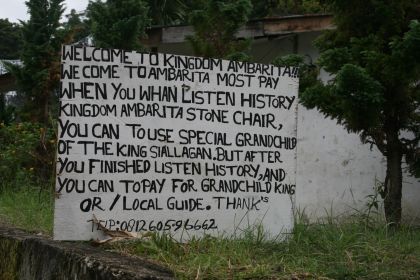
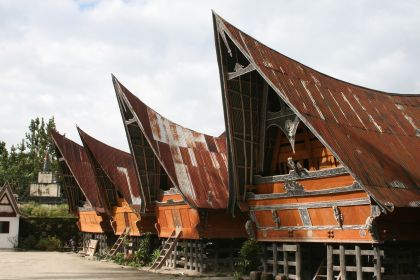
The “Stone Chair” looked at first to be a bunch of old batak houses, but the place has an interesting story. The guide was the grandson of the king of this particular village on Samosir Island. After showing us the batak houses, one of which he lives with his family, we were taken to the “court”. The court was a circle of stone benches where the king and other other men heard cases against criminals. Crimes included theft, murder and adultery.
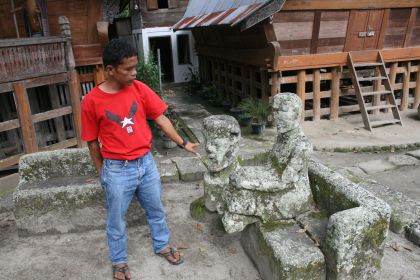
If found guilty, the batak calendar was consulted and an execution date set. The prisoner was held in a jail underneath the king’s house.
The batak people were animists who believed in voodoo and witchcraft. This is one of the magic books. You can see the guide’s 3-year old daughter on the left, who burst into tears when we walked away without her.
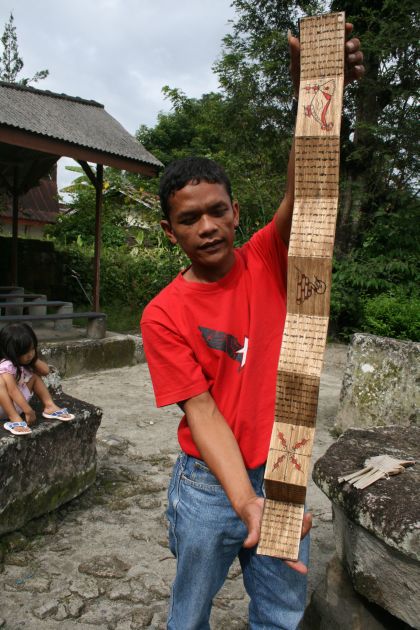
The execution area was just a few meters from the court. The criminal was bound and placed on a stone table and beaten with clubs.
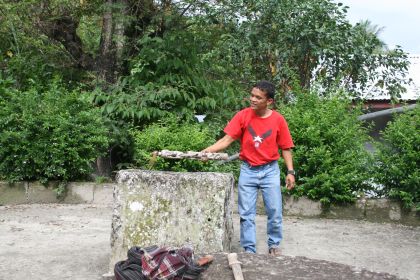
The criminal then had his body slashed with a small knife. Lemon, garlic and chilli were then rubbed into the cuts. The guide acted out the scenes pretty well, and even though his English wasn’t great, he described the execution in excruciating detail.
The criminal then faced the chopping block as kindly demonstrated.
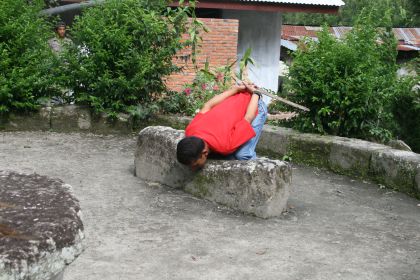
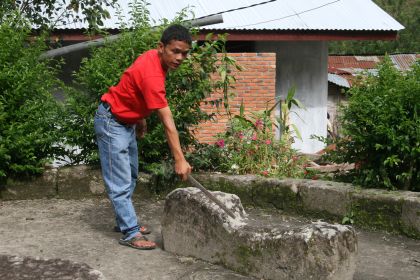
Just when I thought the story couldn’t get any worse, the guide continued telling us how the heart was cut out of the body, which the king then proceeded to eat. The blood was drained from the body which the king also drunk. The body was cut up and fed to the whole village. Only the head and bones were dumped in Lake Toba and people weren’t allowed to fish or visit the lake for seven days.
The last execution was held in 1816, when German missionaries converted the batak people to Christianity. I think the transformation is pretty amazing. As Christians the people are very devout, but the people still seem to hold many of their old beliefs. I heard stories about a man who lives underwater in Lake Toba for months at a time, only surfacing to consult with the Indonesian President and a two-legged lion who roams the jungles.
Here is the king’s tomb where our guide also has a place reserved.
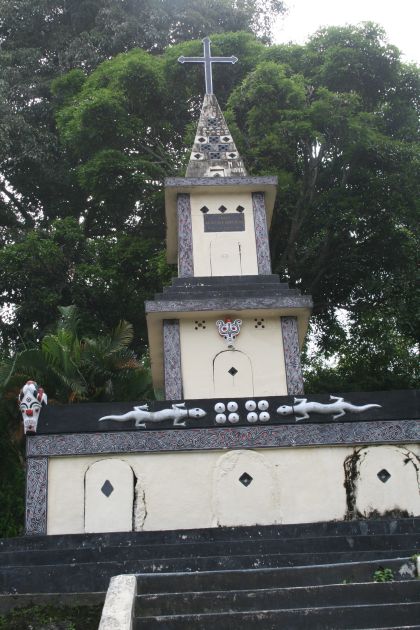
Googling for more information on Lake Toba, I came across this very interesting article.
On Batak women:
“They are not pretty like the Javanese or Acehnese girls. But they are the best women in the world. The best hearts,” he says, pounding on his chest.
“They take care of everything. They plant the rice, they cook the food, wash the clothes, never complain and take care of their men,” he says with a wink.
“They are all loyal,” he adds, “we men here don’t do much. We play chess all day, guitar and drink at night. Sure, we build the houses and other things like that, but they love us the same.”
And on tourism:
“We could make Toba and Tuk-tuk into a tourist place like Bali,” he said, “but why? We have all we need here. No one is rich, but no one is poor. The tourist who do visit us are like you and you are like us. We are all Batak!”





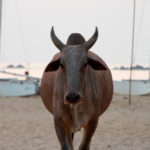

This is a very interesting Read Mike. I have lots to catch up on.
I never thought Lake Toba would have such a rougher side in it’s story. Well said.
I think this place has an adoption of European culture of Christianity. Tomb with Cross in picture is also be seen this design in Europe like their churches, old buildings and old hostels in Barcelona.